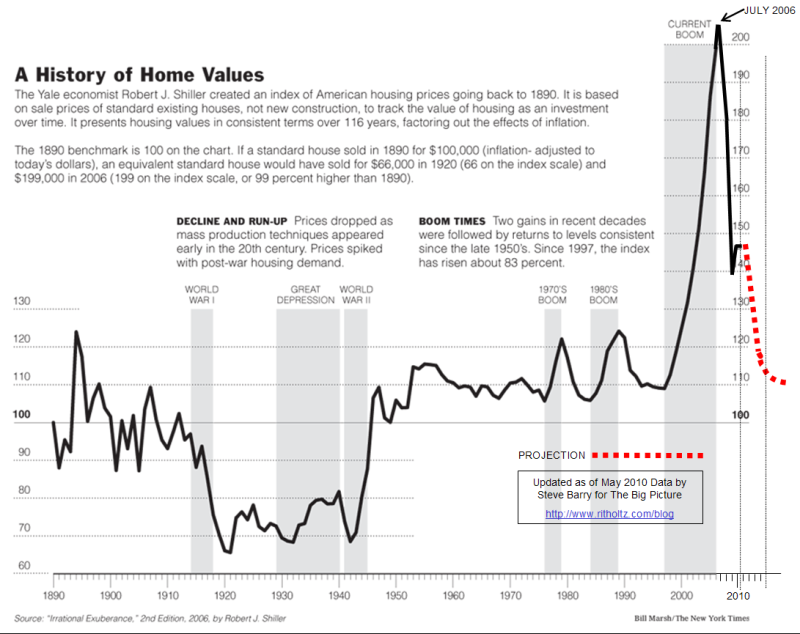Cross Posted from The Stars Hollow Gazette
The CBS News program, “60 Minutes” aired a Mortgage paperwork mess: the next housing shock? segment on foreclosure fraud which, as most economists agree, is the biggest threat to the US economy. Scott Pelley looks for the answer and a at the possible solutions to the question of “who owns your mortgage”:
It’s bizarre but, it turns out, Wall Street cut corners when it created those mortgage-backed investments that triggered the financial collapse. Now that banks want to evict people, they’re unwinding these exotic investments to find, that often, the legal documents behind the mortgages aren’t there. Caught in a jam of their own making, some companies appear to be resorting to forgery and phony paperwork to throw people – down on their luck – out of their homes.
Sheila Bair, Chairperson of the FDIC, says she will call for a clean-up super fund
Banks so poorly handled documentation on millions of mortgages that many today cannot prove that they own the homes they want to foreclose on. The resulting rash of lawsuits from people seeking to save their homes has one of the government’s top banking regulators worried that the torrent of litigation will delay the real estate market’s recovery.
Federal Deposit Insurance Corporation Chair Sheila Bair tells Scott Pelley banks should be forced to contribute billions to a clean-up fund that will help stressed homeowners stay in their homes and stave off lawsuits – there are 30,000 already – that threaten the economic rebound […]
Like last year, banks are expected to foreclose on a million mortgages this year, a scenario that could generate more lawsuits over mismanaged paperwork. “I think that this litigation could easily get out of control,” says Bair. “…We’re already feeling like we’re falling behind it,” She thinks a large clean-up pool funded by the banks that would pay homeowners to accept a bank’s ownership claim without a lawsuit is necessary. “I would assume it would be billions [that the fund would need],” Bair tells Pelley.
But as, David Dayen points out, this “super fund” would not stop any claims in state courts on behalf of homeowners, federal regulators don’t have the authority to do that.
And the more banks resist it, the more liable they will become. In an important case this week, a judge in Alabama dismissed a foreclosure because the bank failed to comply with the pooling and servicing agreement for transferring mortgages to the trust. This would be a stunning ruling if applied broadly, though whether or not it will stand as precedent across other states remains to be seen; it’s far too early in the process to determine that. But we know that banks simply did not convey mortgages to trusts properly as a general rule. Foreclosure fraud can be seen as a coverup for that original sin. And if state courts are starting to make rulings based on that sin, banks will be stuck and unable to pursue foreclosures on tens of millions of loans.
The ruling in favor of the borrower endorses an argument we have made since last year on this blog, that the pooling and servicing agreement stipulated a specific set of transfers be undertaken to convey the borrower note (the IOU) to the securitization trust within a specified time frame. New York trust law was chosen to govern the trusts precisely because it is unforgiving; any act not specifically stipulated by the governing documents is deemed to be a “void act” and has no legal force. So if a the parties to a securitization failed to convey a note to the trust within the stipulated timetable, retroactive fixes don’t work. In this case, the note had been endorsed by the originator, Encore, but not by the later parties in the securitization chain as required in the pooling and servicing agreement.
Yves Smith at naked capitalism, has a problem with what Bair said:
One aspect that is distressing is that per her remarks in this clip, Sheila Bair does not appear to understand or worse, understands but is not willing to admit the seriousness of the chain of title issues. Often, the banks botched the transfer process in such a fundamental manner that retroactive fixes are not possible. This isn’t a matter of “if the banks spend enough time, they can prove the trust they are acting for owns the note” as Bair contends. It’s that in many cases the note didn’t get to the trust as stipulated, and the trust doesn’t have the ability under New York law, which governs virtually all of these trusts, to accept it now. A party earlier in the securitization chain is typically the owner, but no one wants that party to foreclose, since it would confirm the failure to handle the assignment of the note properly.
I’m not so sure that this Congress would be amenable to another multi-billion dollar bail out but this is a better proposal that the one that would strip homeowners of their right to due process.
(all emphasis is mine)



